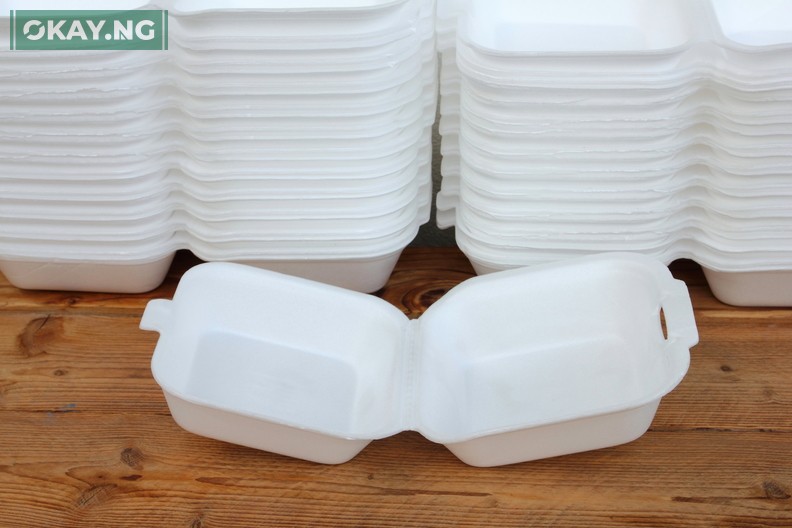The Lagos State Government has commenced the enforcement of its ban on styrofoam and single-use plastics below 40 microns in thickness, reaffirming its commitment to protecting public health and the environment.
In a public notice released Tuesday and signed by Gaji Tajudeen, Permanent Secretary, Office of Environmental Services, Ministry of Environment and Water Resources, the government dismissed concerns that the ban could lead to job losses, describing such fears as “unfounded and a cheap blackmail.”
“The primary responsibility of every government is the safety of lives and property. The administration in Lagos took the bold decision which many other subnational governments are now drawing from,” the notice stated.
Okay.ng reports that the ban, which targets commonly discarded plastic packaging such as takeaway containers and disposable cups, follows years of advocacy and dialogue with stakeholders, the government said.
Tajudeen clarified that the ban was not introduced unilaterally, but rather after extensive consultations with industry stakeholders dating back to 2019. Among those consulted were the Manufacturers Association of Nigeria (MAN), the Food, Beverage and Tobacco Senior Staff Association, and other relevant bodies.
However, MAN had raised objections, claiming the decision lacked credible data and risked stifling manufacturing jobs. The association also criticized the state’s justification for the policy, stating that it was based on “unsubstantiated claims” about health and environmental impacts.
Responding, Tajudeen countered that credible studies on plastic pollution and its health implications are publicly available.
“We do not necessarily need to establish a research institute to check its impact on human health,” he said.
The government warned that markets, stores, or outlets found in possession of or selling banned plastics will be sealed, and the products confiscated. Offenders will also be prosecuted in line with Lagos State’s environmental laws.
The policy is part of a broader effort by the state to combat plastic pollution, which has been blamed for clogged drainage systems, flooding, marine degradation, and growing health risks.











